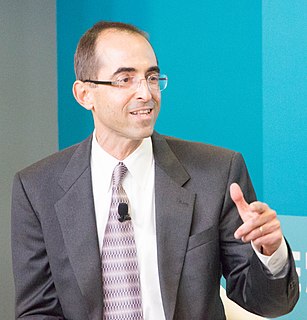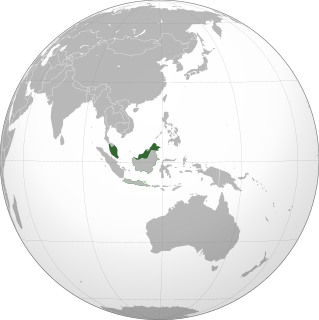Related Research Articles
Attitudes toward lesbian, gay, bisexual, and transgender (LGBT) people and their experiences in the Muslim world have been influenced by its religious, legal, social, political, and cultural history.

Sharia is a body of religious law that forms part of the Islamic tradition. It is derived from the religious precepts of Islam and is based on the sacred scriptures of Islam, particularly the Quran and the Hadith. In Arabic, the term sharīʿah refers to God's immutable divine law and is contrasted with fiqh, which refers to its human scholarly interpretations. The manner of its application in modern times has been a subject of dispute between Muslim fundamentalists and modernists.
Islamic fundamentalism has been defined as a puritanical, revivalist, and reform movement of Muslims who aim to return to the founding scriptures of Islam. Islamic fundamentalists are of the view that Muslim-majority countries should return to the fundamentals of an Islamic state that truly shows the essence of the system of Islam, in terms of its socio-politico-economic system. Islamic fundamentalists favor a literal and originalist interpretation of the primary sources of Islam, seek to eliminate corrupting non-Islamic influences from every part of their lives, and see "Islamic fundamentalism" as a pejorative term used by outsiders for Islamic revivalism and Islamic activism.

Zināʾ (زِنَاء) or zinā is an Islamic legal term referring to unlawful sexual intercourse. According to traditional jurisprudence, zina can include adultery, fornication, prostitution, rape, sodomy, incest, and bestiality. Zina must be proved by testimony of four Muslim eyewitnesses to the actual act of penetration, or a confession repeated four times and not retracted later. The offenders must have acted of their own free will. Rapists could be prosecuted under different legal categories which used normal evidentiary rules. Making an accusation of zina without presenting the required eyewitnesses is called qadhf (القذف), which is itself a hudud offense.
Views and laws about sexuality in Islam are largely predicated on the Quran, the sayings of Muhammad (hadith) and the rulings of religious leaders (fatwa) confining sexual activity to marital relationships between men and women. While most traditions discourage celibacy, all encourage strict chastity, modesty and privacy with regard to any relationships between genders, holding forth that their intimacy as perceived within Islam is largely reserved for marriage. This sensitivity to gender difference, gender seclusion and modesty outside of marriage can be seen in current prominent aspects of Islam, such as interpretations of Islamic dress and degrees of gender segregation.

William Saletan is an American writer for The Bulwark.

Hudud is an Arabic word meaning "borders, boundaries, limits". In the religion of Islam it refers to punishments that under Islamic law (sharīʿah) are mandated and fixed by God as per Islam. These punishments were applied in pre-modern Islam, and their use in some modern states has been a source of controversy.

Rajm in Islam refers to the Hudud punishment wherein an organized group throws stones at a convicted individual until that person dies. Under some versions of Islamic law (Sharia), it is the prescribed punishment in cases of adultery committed by a married man or married woman. The conviction requires a confession from either the adulterer/adulteress, or the testimony of four witnesses, or pregnancy outside of marriage under certain circumstances in Maliki school.
Abortion in the Czech Republic is legally allowed up to 12 weeks of pregnancy, with medical indications up to 24 weeks of pregnancy, in case of grave problems with the fetus at any time. Those performed for medical indications are covered by public health insurance, but otherwise, abortion is relatively affordable in the Czech Republic. In Czech, induced abortion is referred to as interrupce or umělé přerušení těhotenství, often colloquially potrat ("miscarriage").
Religious police are any police force responsible for the enforcement of religious norms and associated religious laws. Most religious police in modern society are Islamic and can be found in countries with large Muslim population, such as Saudi Arabia or Iran. The responsibilities of religious police heavily vary by religion and culture. For example, the Islamic religious police prioritize the prevention of alcohol consumption, playing of music and public display of affection, Western holidays, and prayer time absences. On the other hand, the religious police force in Vietnam are responsible for monitoring religious extremists, such as Dega Protestants or Ha Mon Catholics.
There is a wide range of Muslim attitudes towards terrorism.
The Cairo Declaration on Human Rights in Islam (CDHRI) is a declaration of the member states of the Organisation of Islamic Cooperation (OIC) first adopted in Cairo, Egypt, on 5 August 1990,, and later revised in 2020 and adopted on 28 November 2020. It provides an overview on the Islamic perspective on human rights. The 1990 version affirms Islamic sharia as its sole source, whereas the 2020 version doesn't specifically invoke sharia. The focus of this article is the 1990 version of the CDHRI.

Khalid Yasin, is an American Islamic preacher, a former Christian, who lives in Manchester, England and lectures in the United Kingdom and other parts of the world. Yasin frequently travels overseas to spread his faith and has called himself a "media-bedouin," remarking that the Bedouins are willing to settle wherever there is a presence of "water and shelter".

Lesbian, gay, bisexual, and transgender (LGBT) people in Malaysia face significant challenges not experienced by non-LGBT residents. Sodomy is a crime in the country, with laws strictly enforced, and social attitudes towards the LGBT community are shaped by Islam, the official state religion of Malaysia. Breaking the law is punishable by up to 20 years in prison and authorities will also bring the person to corporal punishment (caning).

Stoning, or lapidation, is a method of capital punishment where a group throws stones at a person until the subject dies from blunt trauma. It has been attested as a form of punishment for grave misdeeds since ancient times.
The relationship between multiculturalism and Islam is an important aspect in the overall debate on the soundness of the modern doctrine of multiculturalism.
The use of politically and religiously-motivated violence dates back to the early history of Islam, finding its origins in the behavior, sayings, and rulings of the Islamic prophet Muhammad, his companions, and the first caliphs in the 7th, 8th, and 9th centuries CE. Mainstream Islamic law stipulates detailed regulations for the use of violence, including corporal and capital punishment, as well as how, when, and against whom to wage war.
Capital punishment as a criminal punishment for homosexuality has been implemented by a number of countries in their history. It currently remains a legal punishment in several countries and regions, all of which have sharia-based criminal laws. Gay people also face extrajudicial killings by state and non-state actors, as in Chechnya in 2019, though it is denied by the Chechen authorities and Russia.
In Islam, morality in the sense of "practical guidelines" or "specific norms or codes of behavior" for good doing, are primarily based on the Quran and the Hadith – the central religious texts of Islam – and also mostly "commonly known moral virtues" whose major points "most religions largely agree on". They include kindness, charity, forgiveness, honesty, patience, justice, respecting parents and elders, keeping promises, and controlling one's anger, love of God and those God loves, love of his messenger (Muhammad) and of believers.
Criminalization of homosexuality is the classification of some or all sexual acts between men, and less frequently between women, as a criminal offense. Most of the time, such laws are unenforced with regard to consensual same-sex conduct, but they nevertheless contribute to police harassment, stigmatization, and violence against homosexual and bisexual people. Other effects include exacerbation of the HIV epidemic due to the criminalization of men who have sex with men discouraging them from seeking preventative care or treatment for HIV infection.
References
- ↑ Guiora, Amos N. (4 September 2008). Top Ten Global Justice Law Review Articles 2007. p. 406. ISBN 9780195376586.
- ↑ The Economist, Volume 375, Issues 8420-8428. 2005. p. 58.
- ↑ The Lowy Institute Poll Australians Speak 2005
- ↑ Guiora, Amos N. (4 September 2008). Top Ten Global Justice Law Review Articles 2007. p. 406. ISBN 9780195376586.
- ↑ LOWY INSTITUTE POLL 2014
- ↑ Survey: Australians say U.S. policies as threatening as Islamic fundamentalism
- ↑ New best friends Unwelcome news for Australia's Americophiles
- ↑ Stewart, Dona J. (2013). The Middle East Today: Political, Geographical and Cultural Perspectives. p. 264. ISBN 9780415782432.
- 1 2 Rane, Halim (2010). Islam and Contemporary Civilisation. p. 182. ISBN 9780522857283.
- ↑ "Public Opinion in the Islamic World on Terrorism,al Qaeda, and US Policies" (PDF). Archived from the original (PDF) on 2009-03-06. Retrieved 2016-04-16.
- 1 2 Hassan, Riaz (2008). Inside Muslim Minds. p. 123. ISBN 9780522854817.
- ↑ University, of Virginia (2005). The Virginia Review of Asian Studies, Volume 8. p. 65.
- 1 2 Concerns about Islamic Extremism on the Rise in Middle East
- 1 2 A Year After Iraq War (Pew Research Poll on Muslim attitudes shows high percentage favor terrorism)
- ↑ Poll Finds Less Support for Terrorism
- 1 2 Most People 'Threatened By Islam'
- ↑ Communities and Local Government Committee, Parliament. House of Commons (30 March 2010). Preventing Violent Extremism: Sixth Report of Session 2009-10 : Report ... p. 126. ISBN 9780215545466.
- 1 2 Supplementary memorandum from Institute for Policy Research & Development (PVE 19A)
- ↑ Poll Finds Suspicion Of Muslims Increasing
- ↑ Communities and Local Government Committee, Parliament. House of Commons (30 March 2010). Preventing Violent Extremism: Sixth Report of Session 2009-10 : Report ... p. 126. ISBN 9780215545466.
- ↑ Coolsaet, Professor Dr Rik (28 April 2013). Jihadi Terrorism and the Radicalisation Challenge: European and American ... p. 113. ISBN 9781409476450.
- ↑ Mistrust and the Mosque
- ↑ The New York Times Laments "A Sadly Wary Misunderstanding of Muslim-Americans." But Really Is It "Sadly Wary" Or A "Misunderstanding" At All?
- 1 2 3 4 5 6 Stence, Sandra, ed. (2013). The World's Muslims: Religion, Politics and Society (PDF). Research: Alan Cooperman, Neha Sahgal, Jessica Hamar Martinez, et al. The Pew Forum on Religion & Public Life. Retrieved 5 October 2016.